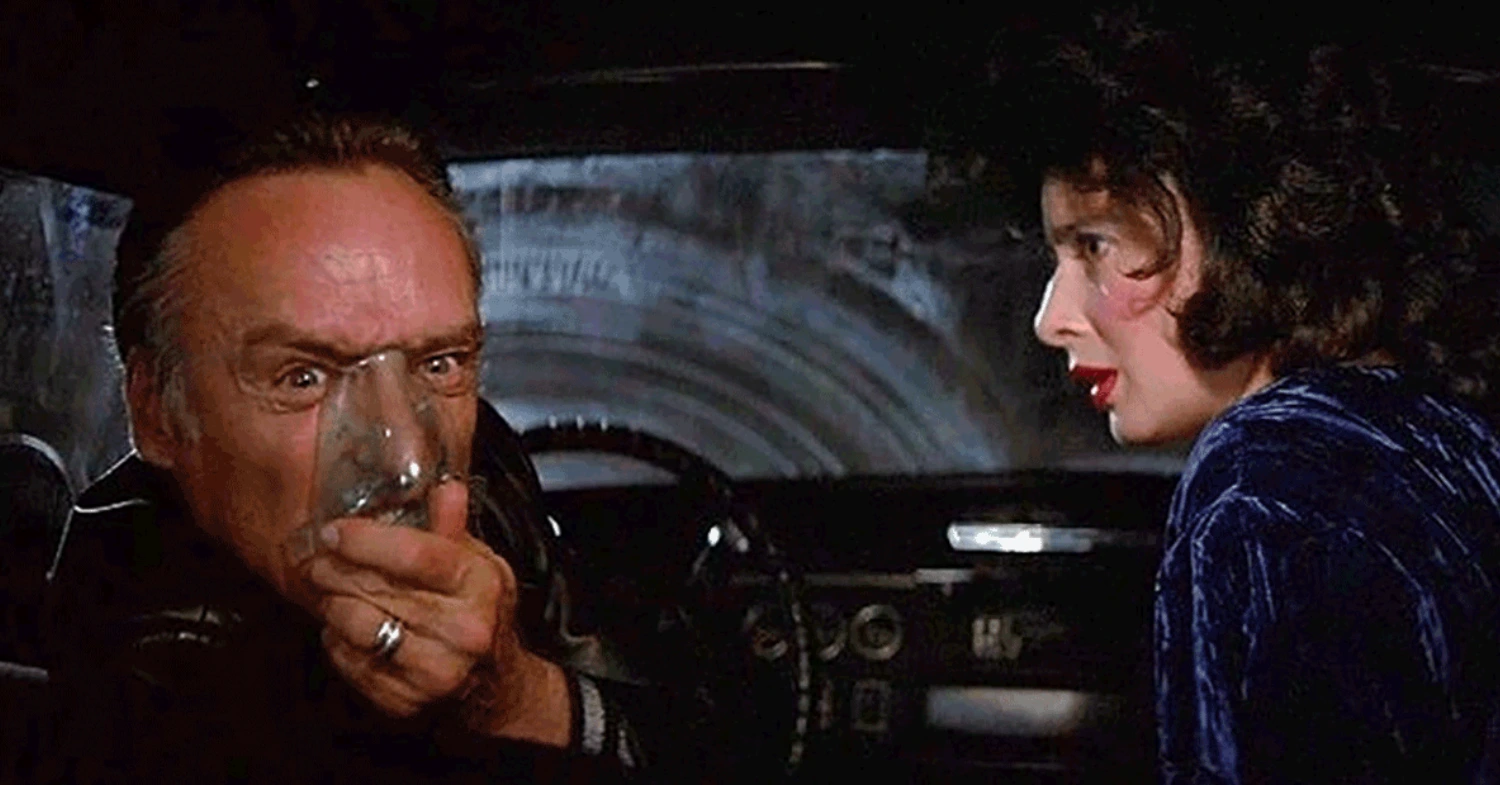If for nothing else, Blue Velvet serves as a key to unlock the filmography of David Lynch, as if every subsequent movie would take bits and pieces from Blue Velvet and expand them into their own ideas and themes. It’s cryptic, morally ambiguous, and set in the heart of a deep underbelly within small town life. The film is beguiling as hell, and even features many of Lynch’s recurring actors and actresses, led by Kyle MacLachlan (Dune, Fire Walk with Me) and Laura Dern (Wild at Heart, Inland Empire). The movie isn’t as nearly as cut-and-dry as its noir elements suggest and its contemporaries often were, and it seems that public consensus has only further improved since Blue Velvet‘s release in 1986.

And like I keep mentioning with each of these David Lynch reviews – I wouldn’t say Blue Velvet is my favorite of Lynch’s films. It runs out of gas about 75% in and only contains fragments of the style I think he perfects with Lost Highway and Mulholland Drive. The film is narratively tighter than its successors but still contains the ambiguity he’s well known for, with many character traits (many belonging to Dennis Hopper’s oddly perfected performance as the sadistic antagonist Frank Booth) being left unanswered or unexplained. Hopper’s performance as Frank intentionally dominates the frame when present, and Isabella Rossellini’s softer performance rings through to counter-balance it.
Ultimately, Blue Velvet comes across like a fever dream, as if you’re not really sure that what you’re watching makes sense or is even real life. The duality of the coming-of-age story for Jeffrey and Sandy (Kyle MacLachlan and Laura Dern, respectively) and Frank Booth’s reign of terror on Dorothy (Rossellini) and the pair of kids works surprisingly well. It balances two significantly different plotlines with a tone very few filmmakers can achieve – and a style only David Lynch can master.
Upon this viewing of Blue Velvet, I realized just how much David Lynch was building to Twin Peaks and Fire Walk with Me. He’s interested in exploring the unknown, and specifically the hidden worlds that people want to be kept unknown. Lost Highway explores these themes quite a bit, too, as if you’re viewing a world you’re never meant to see. Not to get too cheeky here, but isn’t that what filmmaking is all about? I’m drawn to Lynch’s films because they feel unnatural and supernatural in equal measures. Despite being grounded melodramas, Blue Velvet (and Lynch’s following features) feel larger than life.
David Lynch’s first three movies – Eraserhead, The Elephant Man, and Dune – suggest that just about anything is on the table when it comes to his interests as a director. It’s not until Blue Velvet that he comes into form as the filmmaker we understand as a codified auteur today. It’s very possible that it took the commercial and critical panning of Dune to get Lynch to a point where he’d make his own projects regardless of how mass audiences feel. Although not the peak of his career, Blue Velvet redirects David Lynch’s career to a different trajectory and remains a canonical film of the 1980s.
Score: 8/10
Blue Velvet (1986)
- Cast: Kyle MacLachlan, Lauran Dern, Isabella Rossellini, Dennis Hopper
- Director: David Lynch
- Genre: Crime, Mystery, Thriller
- Runtime: 120 minutes
- Rated: R
- Release Date: September 19, 1986
- Movies Like Blue Velvet: Fight Club, Videodrome, Infinity Pool, More Movies Like Blue Velvet
Read More Reviews for David Lynch Movies
Cinephile Corner has reviewed the following David Lynch movies: